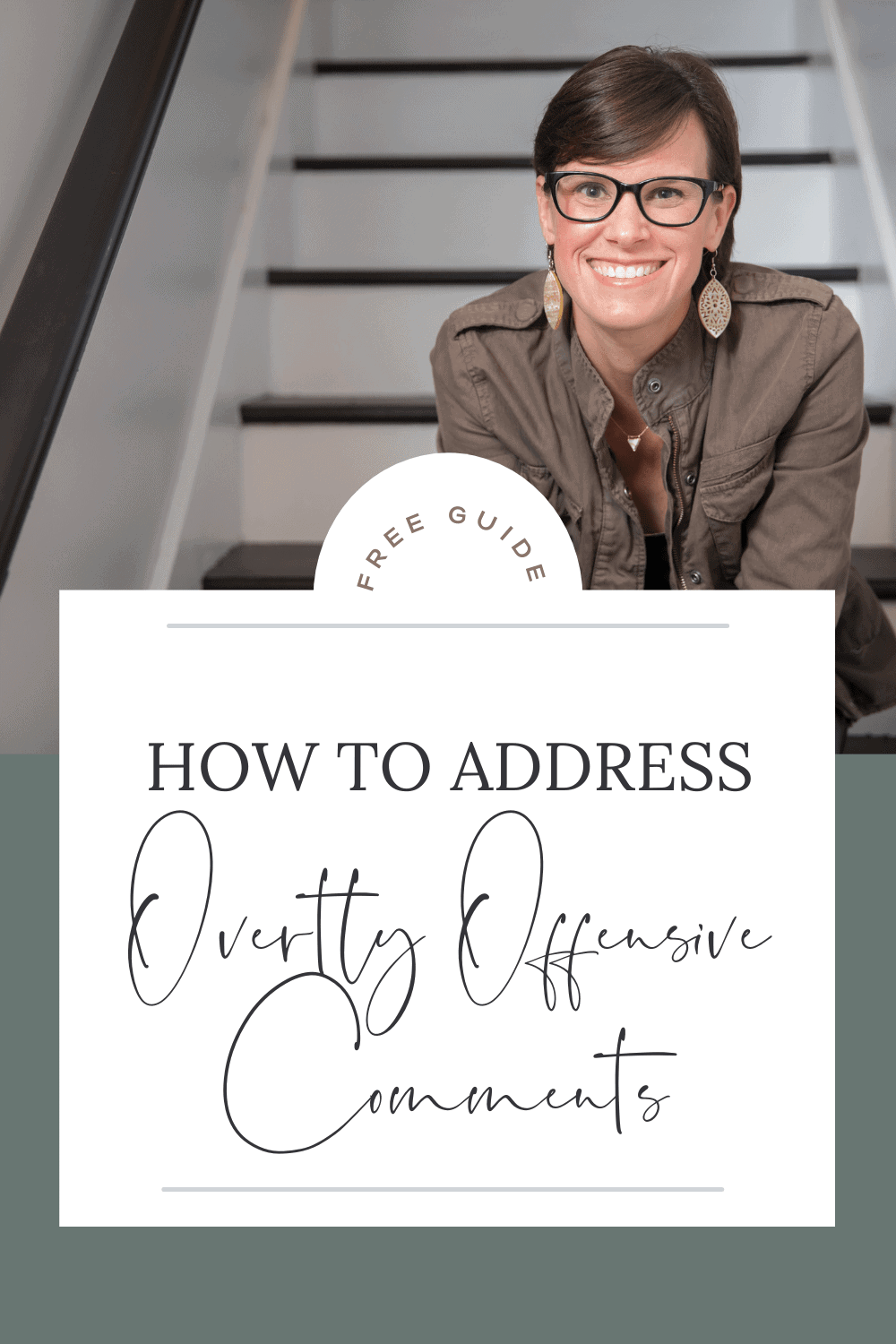The Word “Should” Has No Place in Your Vocabulary
In emerging from a particularly challenging season, I used the word “should” in lamenting to a mentor all the mistakes I had made. I was eager to pull myself out of despair but was drowning in shame, guilt, regret, and self-judgment. I was determined to learn from my circumstances but was stuck feeling angered and frustrated by them.
She let me talk, then shared how eliminating “should” from her vocabulary had made a big difference in her life; maybe I would like to do the same? She challenged me to be mindful of ANY time I found myself thinking or speaking the word “should”. “See if you feel better or worse about your reflections once you have judged them with a ‘should’.” The difference it made in her life, she said, was profound.
I understood the gist of where she was going with her statement, but I think it’s important to consider the Oxford English Dictionary definition of the word should:
“Used to indicate obligation, duty, or correctness, typically when criticizing someone’s actions.”
I was satisfied with the initial descriptors of the word – after all, we all can relate to the importance of fulfilling our obligations and duties, and of course we want to do so correctly… But wait – what was that second part again?
“… typically when criticizing someone’s actions.”
Blech- that did not leave a good taste in my mouth. “Critical” was not an identity that I wanted for myself.
The more I considered it, the more I came to appreciate that I didn’t need the word after all. It was not difficult to re-wicker my mental narrative, eliminating that word; what I didn’t expect was that it would take a lot of bad feelings with it when it walked out the door.
Gone were the regrets, second-guessing and self-loathing; in came the forward-looking, reflective words that helped me accept what had been and plan for a better future. Reactive and regretful were replaced by proactive and positive.
Here’s how I went about eliminating the word should from my vocabulary.
The Word “Should” Leads to Shame
It goes like this: “I should have a clean house at all times so I am always ready for a *surprise* guest”, or “I should take time to rest“.
Somewhere between making mud pies and drafting our first resume, we picked up messages about how we “should” be. When life catches up to us and we have more balls in the air than we could ever catch at one time, we turn our anger inwards for the ways we fall short.

The word “should” is inherently negative; using this word results in feelings of inadequacy, anxiety, frustration, and self-rejection.
Beating ourselves up for what we should have done, or telling ourselves who we should be, is akin to fighting an enemy within us. It drains our energy from other tasks and perpetuates a negative self-talk cycle.
Try This Instead:
Let’s update the narrative, shall we? Eliminating “should” looks like this: “I would like to have a clean house, and I accept that my house is going to be a bit messy in this season of life.” or “Today, I’ll save five minutes at the end of my day to make tomorrow’s to-do list.”
Remind yourself why you want to do something, e.g., “I always feel great after I work out – I’m going to prioritize working out tomorrow.” Or, “I slow down and enjoy my food when I know I’ve had a good workout. I like that feeling and want to set myself up to get more of that.”
The Word “Should” Leads to Guilt
Tell me if this sounds familiar: “I should have invited the new hire to lunch on her first day”, or “I should have volunteered at the kids’ science fair on Wednesday morning.” We try to squeeze ten lives into one. We’re bursting at the seams, overloaded with work commitments and personal obligations; if that wasn’t enough on its own, we allow ourselves to feel guilty about all of the ways we are falling short.
Ladies, dust off your copies of Sheryl Sandberg’s Lean In and remember this fact: “In 1975, stay-at-home mothers spent an average of about eleven hours per week on primary child care (defined as routine caregiving and activities that foster a child’s well-being, such as reading and fully focused play)… Today, stay-at-home mothers spend about seventeen hours per week on primary child care, on average, while mothers who work outside the home spend about eleven hours.”
Sandberg concludes by stating, “An employed mother today spends about the same amount of time on primary child care activities as an unemployed mother did in 1975.”
We stretch ourselves to our absolute max, then feel guilty about not being able to stretch further. Let’s accept the known history as fact, re-frame the narrative, and take back control of our minds and our futures. Eliminating the word “should” does this for us.
Try This Instead:
Tuck the words “could”, “are”, and “will” in your back pocket as well. These words indicate freedom, possibility, and certainty, whereas the word “should” is rife with guilt.
“I will stop by the new hire’s office tomorrow and offer to help her make connections in her new hometown.”
Also, this: “I could spend some time on Sunday afternoon preparing treats for the classroom.”

The Word “Should” Leads to Regret
“I should have responded differently when I witnessed that microaggression in the workplace yesterday.” “I should have read the materials before the first session of the conference.” Where do these thoughts get us? Nowhere! Are they the key to the time machine that allows us to go back and “do-over” whatever we’re so upset about? Nope!
Sometimes, we use regret as an excuse to justify our behavior. Rather than owning the choices that we made, we smack ourselves with a “should have” and don’t consider the toll that these punches take on us. Before we know it, this has become a behavior we repeat whenever it suits us.
Don’t want to figure out how to handle something? Just don’t do it, then give yourself a “should have” sucker punch.
The word “should” steals into our minds and creeps away with our most precious resource: our TIME.
How much TIME do we spend looking backward, beating ourselves up about things we simply cannot change? This mental practice is criminal!
Try This Instead:
“I am preparing statements that will help me interject when I witness microaggressions in the workplace. The next time it happens, I will be prepared.”
“It is unlikely that I will ever pre-read the materials for a conference. I am making peace with that and committing to giving the speaker my full attention.”
The Word “Should” Leads to Judgment
How many times have you said to your kids, “You should have picked the wet towel up off the floor.” or to yourself “I should have sent the email last week instead of today.”
Both sentences may be true; however, when delivered, the recipient understands that a) their behavior is being judged, and b) their behavior has been found lacking. Oftentimes, the recipient of the word “should” is you!
As parents and as managers, we find ourselves in positions to judge others’ behavior and performance. We are tasked with helping them make good decisions and develop into capable adults and confident business women. Nevertheless, the words we say to them as mentors frame the narrative they carry with them.
When our internal narrative includes the word “should”, we are engaging in an active form of self-criticism. We are telling ourselves that we are not enough just as we are. Self-rejection creates anxiety and stress in our minds and bodies, shutting down our brain’s ability to problem-solve and maintain attention on a new task.
Try This Instead:
Give some thought to hearing the following messages from someone whose respect and admiration you covet: “Next time you shower, hang the towel on the rack to dry.” “I’d like to see you send the email one week in advance of our next meeting so we have more time to prepare.”
No matter whether we use the word “should” or not, the message receiver is unable to go back in time to change their behavior; all they can control is the choices they make in the future. Give them some feedback that they can take action on in the future, rather than a judgment on their shortcomings in the past.
Are you satisfied with all the “shoulds” in your life? If not, take the word out and replace it with something you can take action on in the future. These are some feelings that I am striving to leave in the past, along with the word “should”: shame, guilt, regret, and judgment.
COMMUNICATIONS & MINDSET TOOLS



